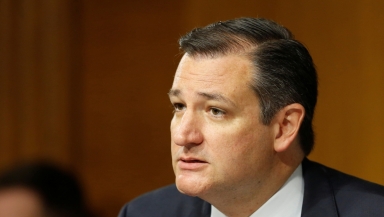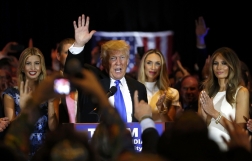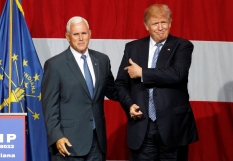
Republican Senator and former presidential hopeful Ted Cruz has defended his decision not to endorse Donald Trump, saying today that he was not the candidate's "servile puppy dog" in a damaging rift at the party's convention ahead of the election on 8 November.
Cruz, who was raised in the evangelical sub-culture after his father Raphael was saved from alcoholism, was booed by delegates at the gathering in Cleveland on Wednesday night when he gave a speech but did not endorse Trump.
The conservative senator from Texas refused to say whether he would vote for Trump, who had maligned Cruz's wife for her physical appearance and had suggested that his father was linked to late President John F. Kennedy's assassination.
"I am not in the habit of supporting people who attack my wife and attack my father," he told a meeting of the Texas delegation in Cleveland.
Republican candidates had pledged during the primary process to support the party's eventual nominee, but, he said: "That pledge was not a blanket commitment that if you go and slander and attack Heidi that I'm going to nonetheless come like a servile puppy dog and say 'thank you very much for maligning my wife'".
Cruz made it clear he would not vote for the Democratic presidential candidate, Hillary Clinton, however.
Trump is due to give a prime-time speech on Thursday evening.
The Republican convention began on Monday but was initially overshadowed by a speech from Trump's wife, Melania, which caused controversy because she used some lines that were similar to passages in an address by first lady Michelle Obama in 2008.
Susan Hutchison, chair of the Washington delegation, said she confronted Cruz after his speech and called him a "traitor to the party."
New Jersey Governor Chris Christie, a close Trump adviser who was also a presidential rival, criticised Cruz's address. "I just think it was an awful performance," he told MSNBC.
Trump's campaign manager, Paul Manafort, attempted to put a positive spin on the booing of Cruz, which he said increased party unity, "in a backhanded way."
Additional reporting by Reuters.















